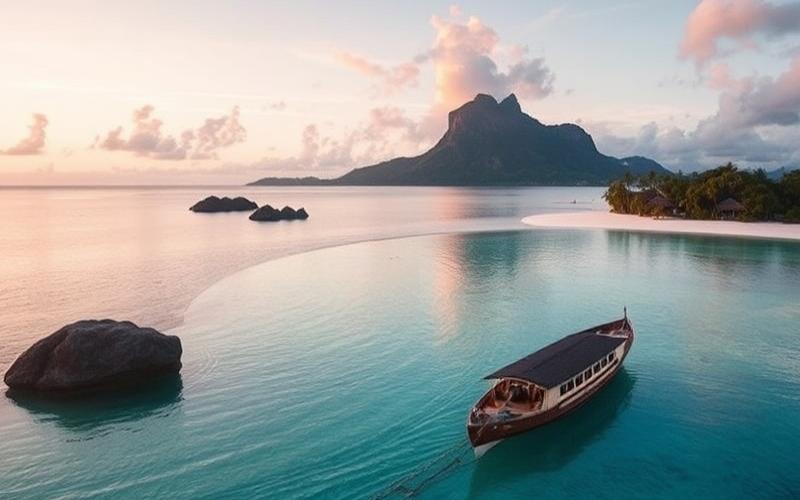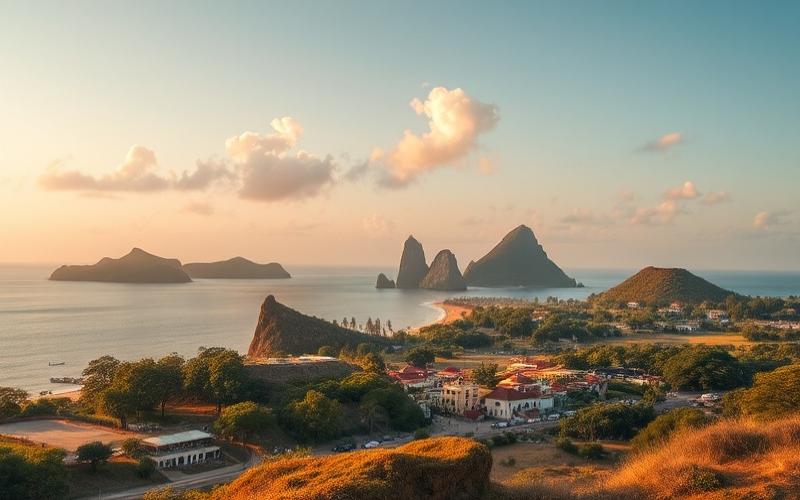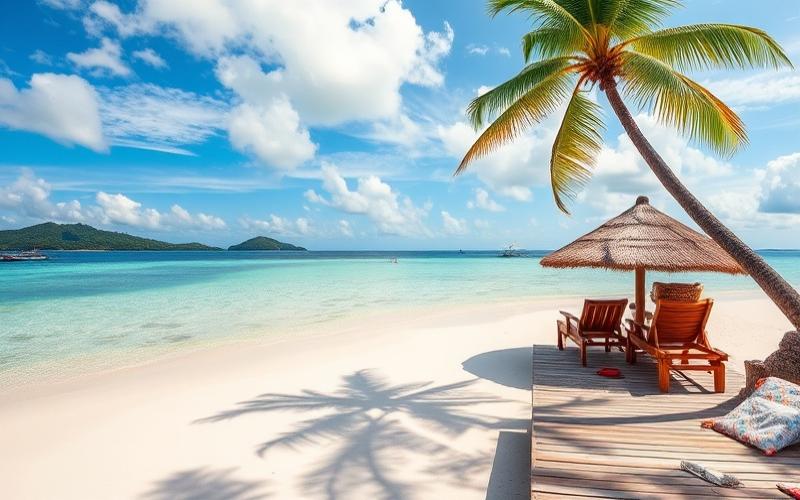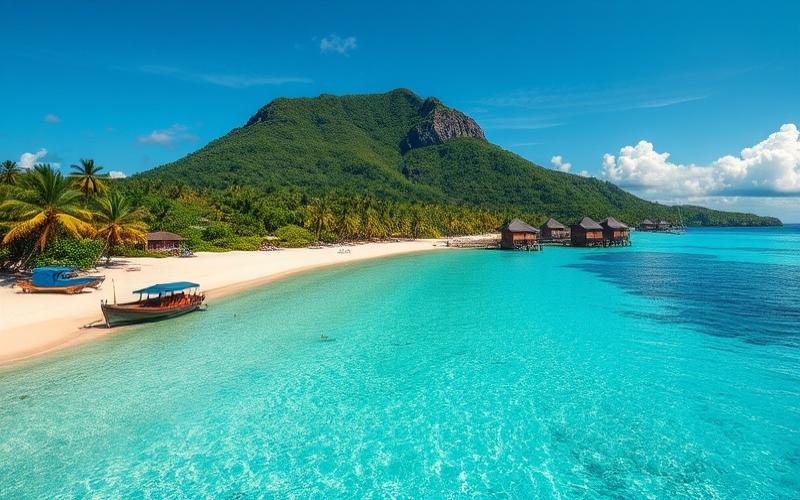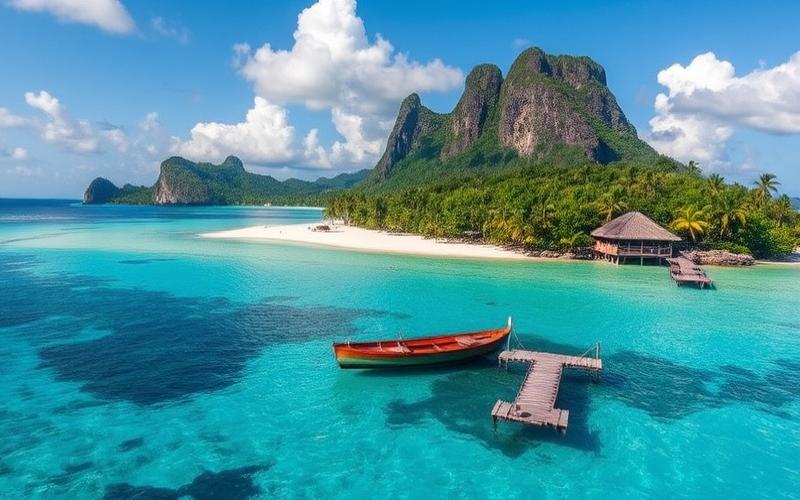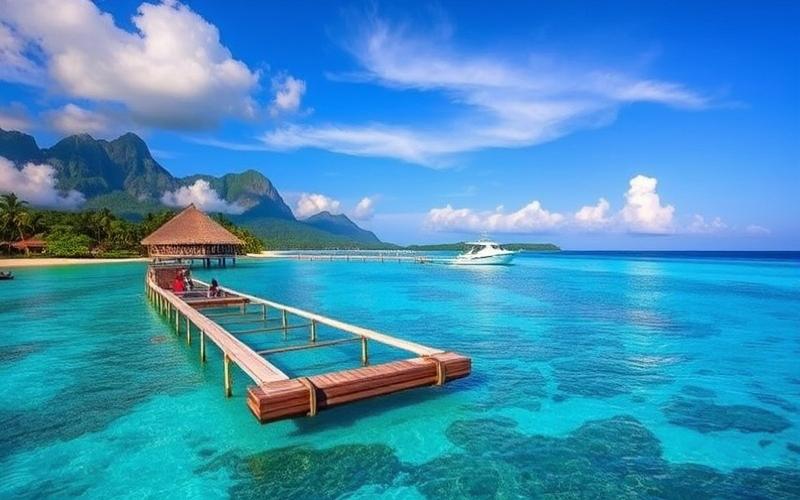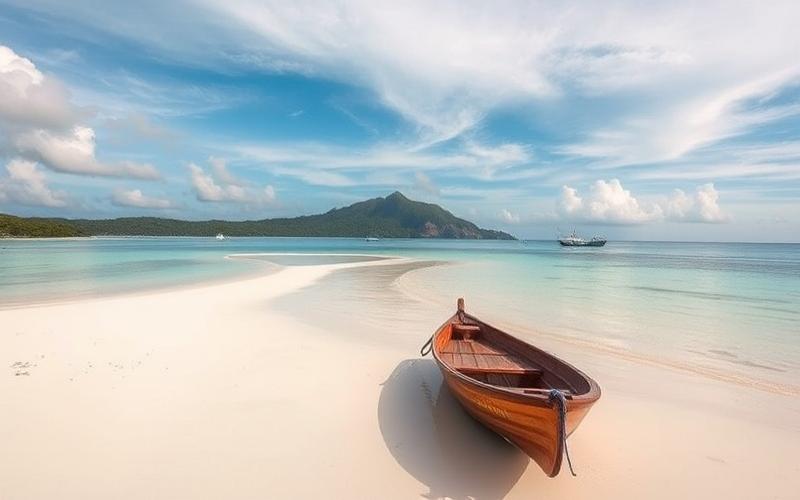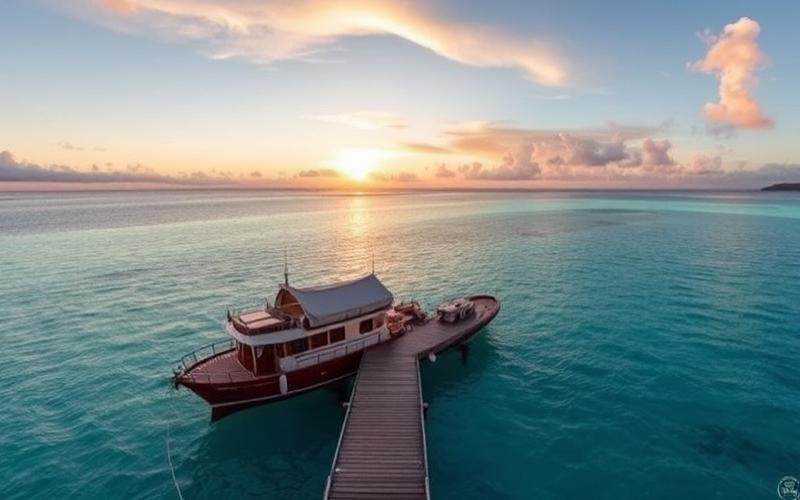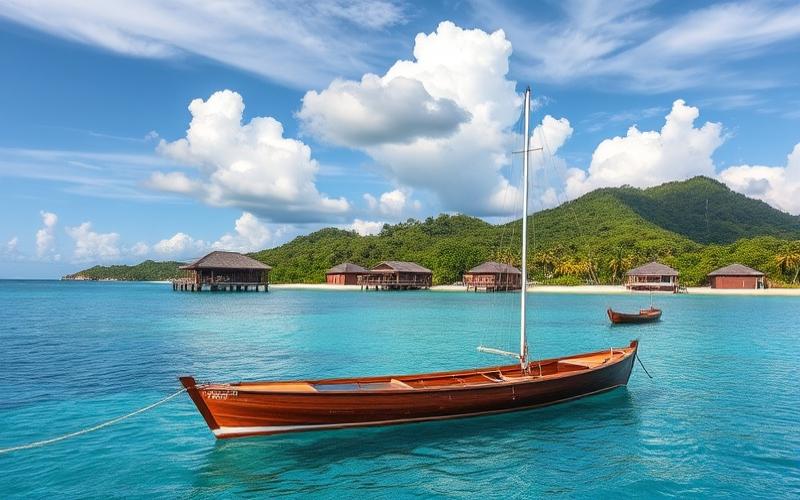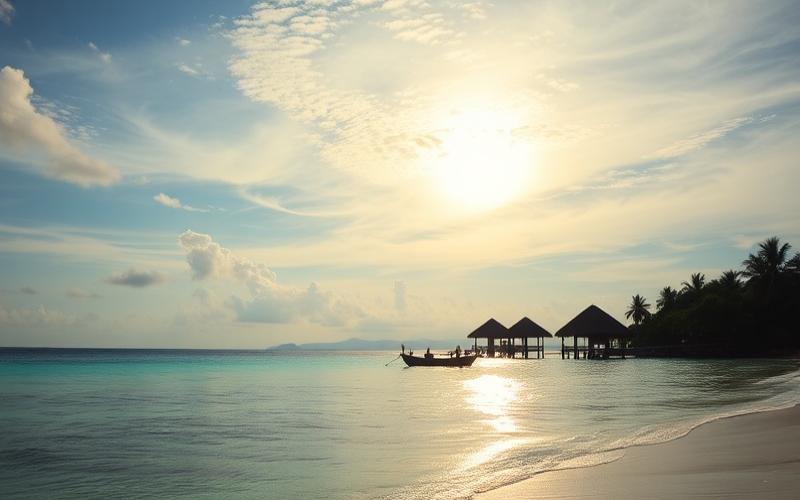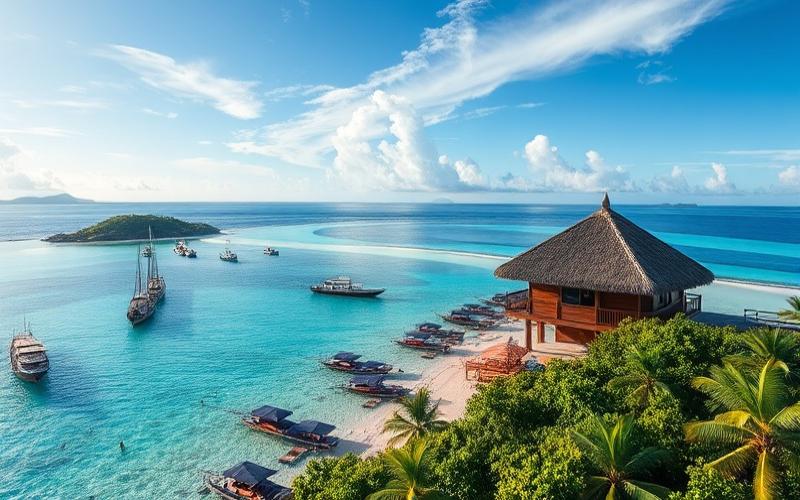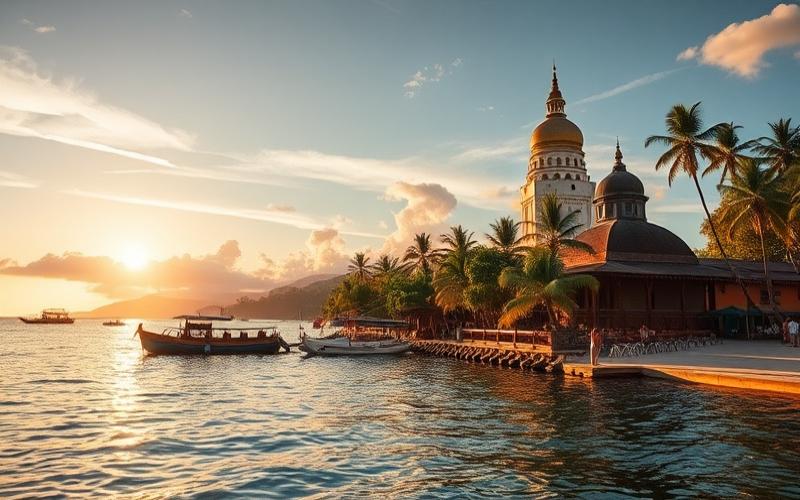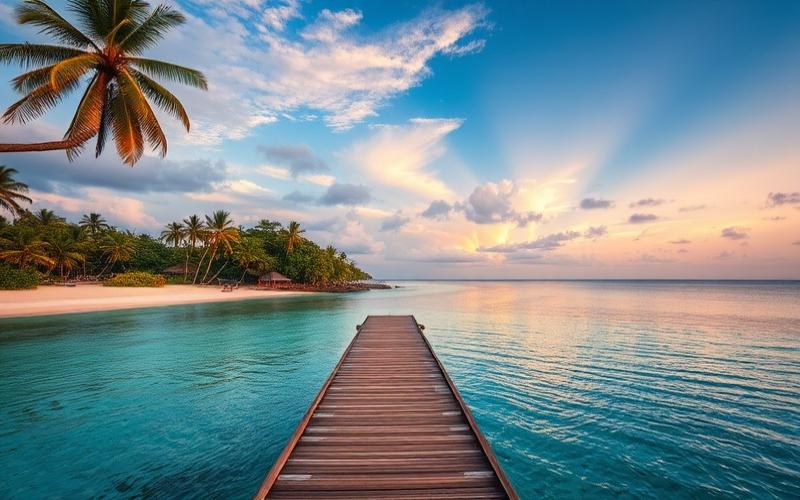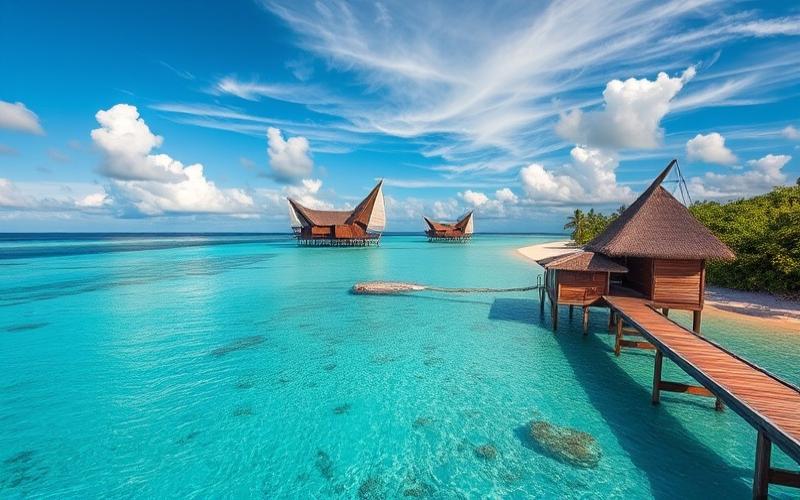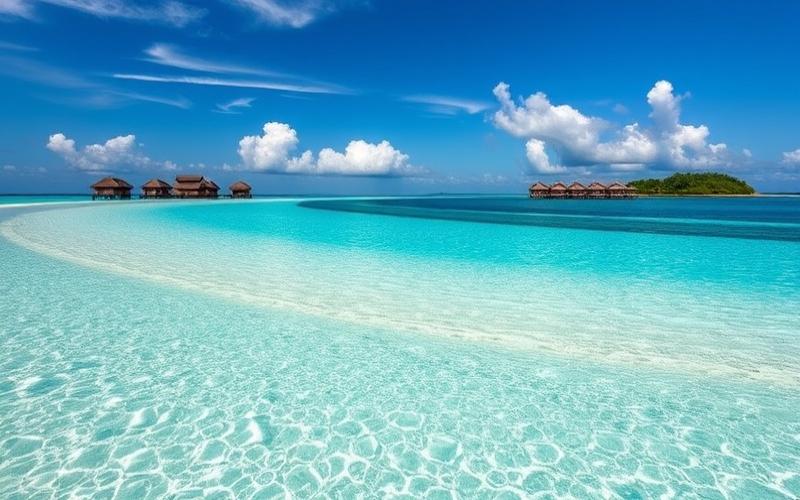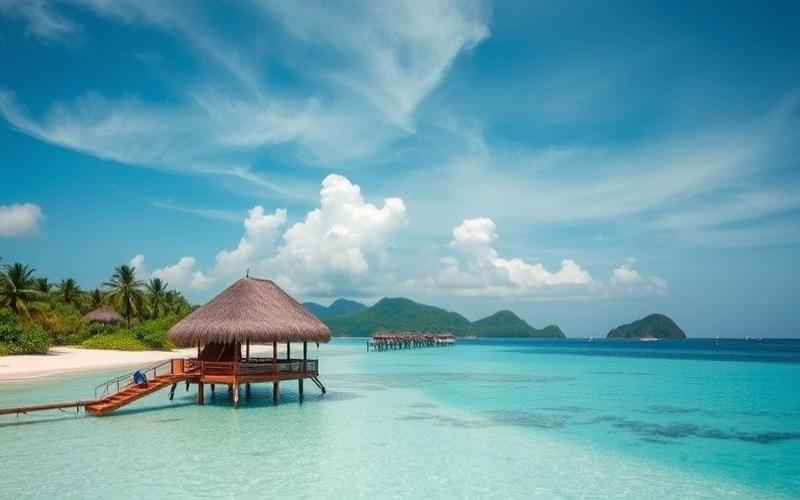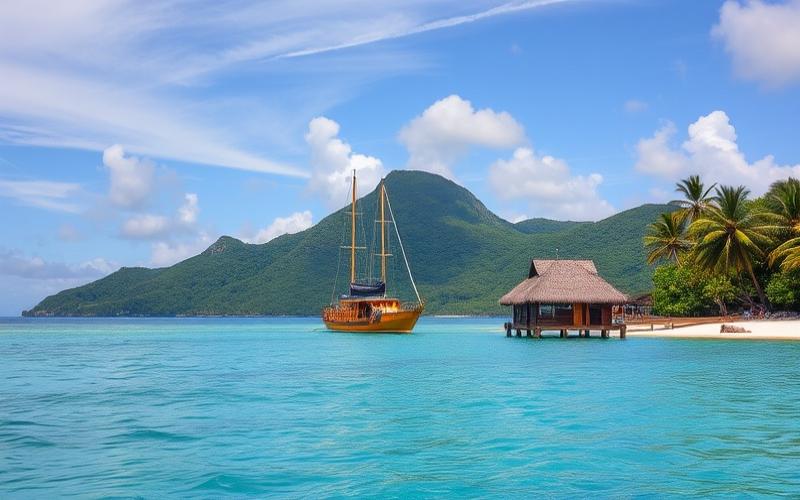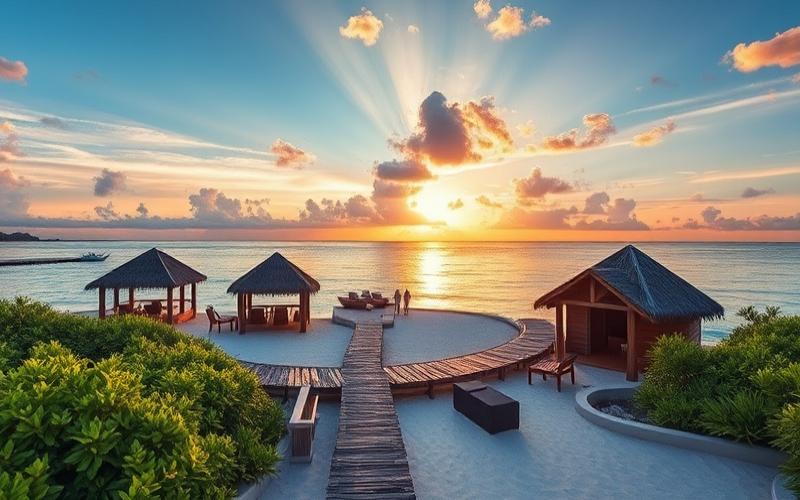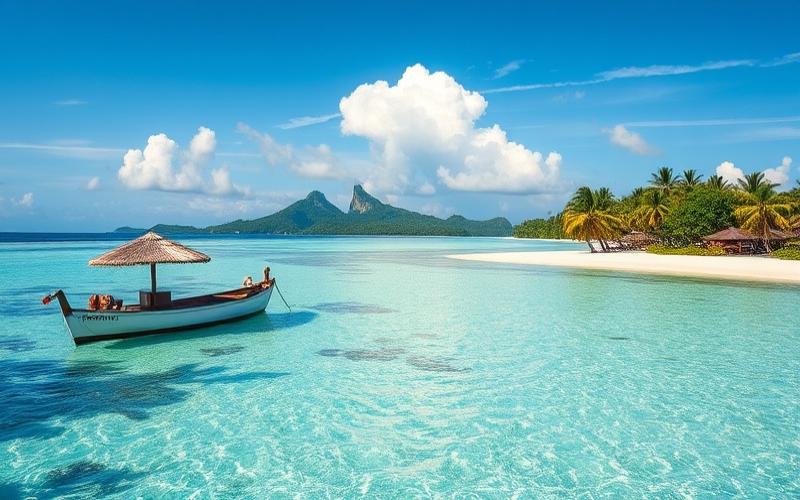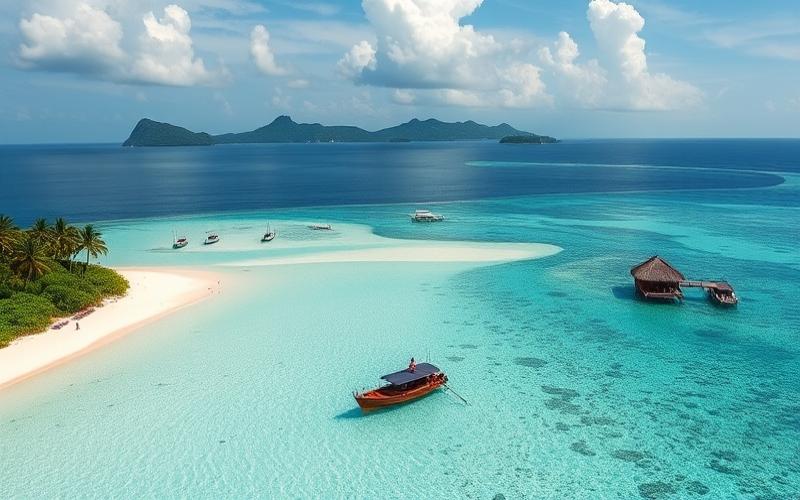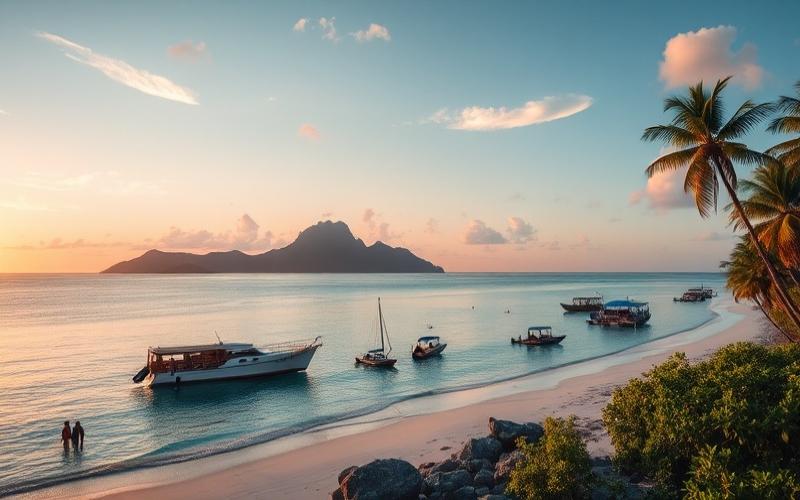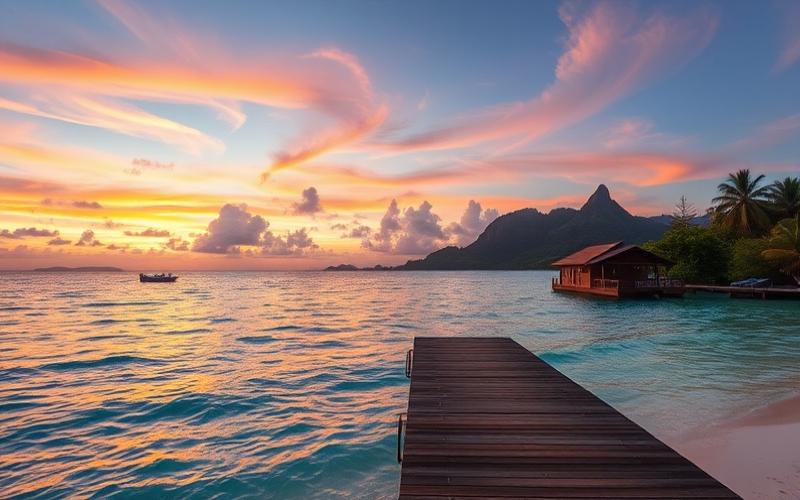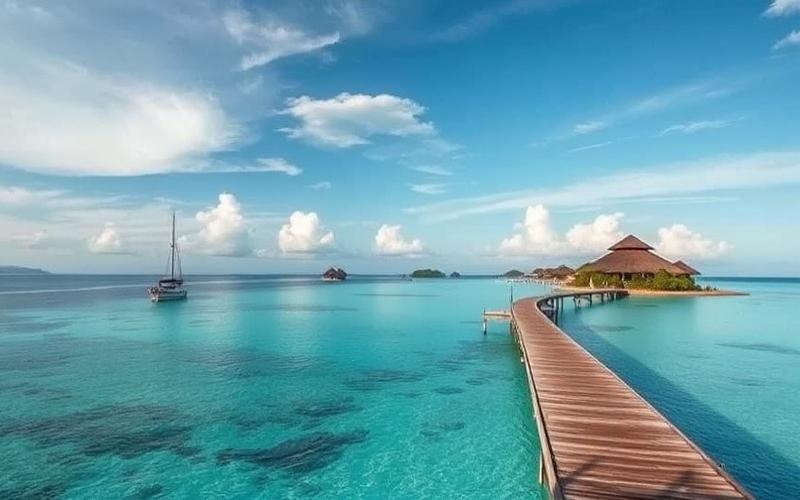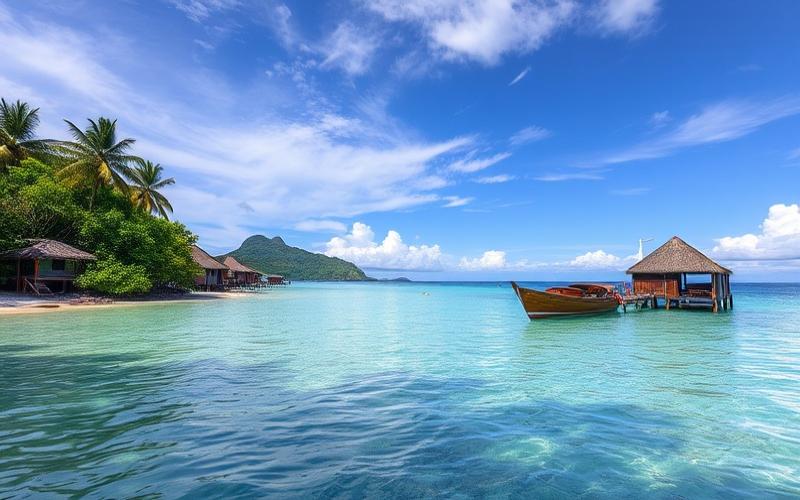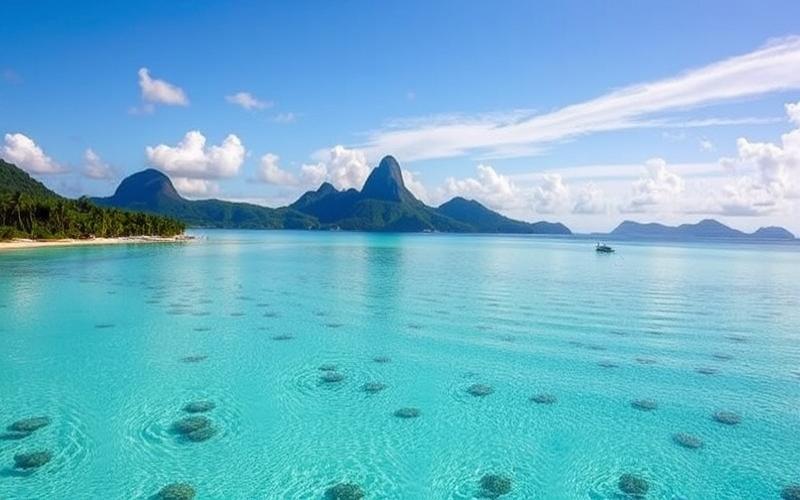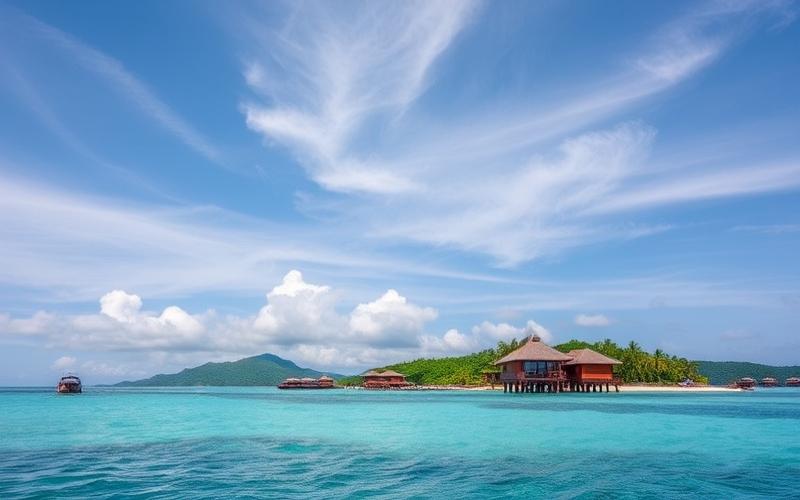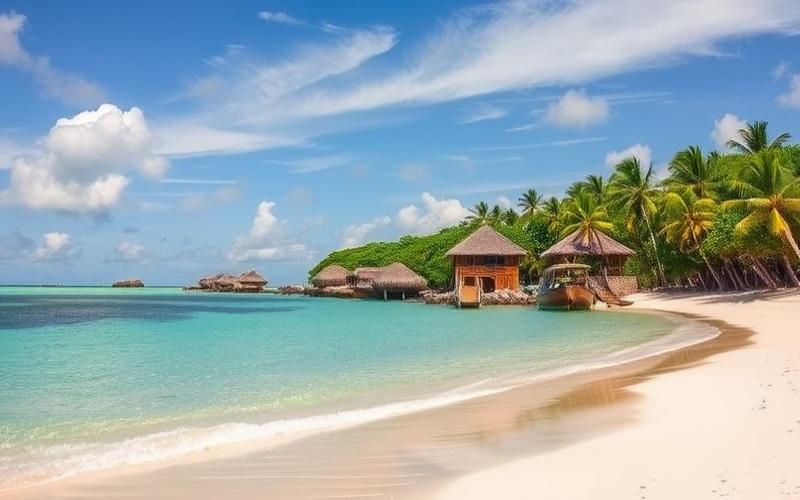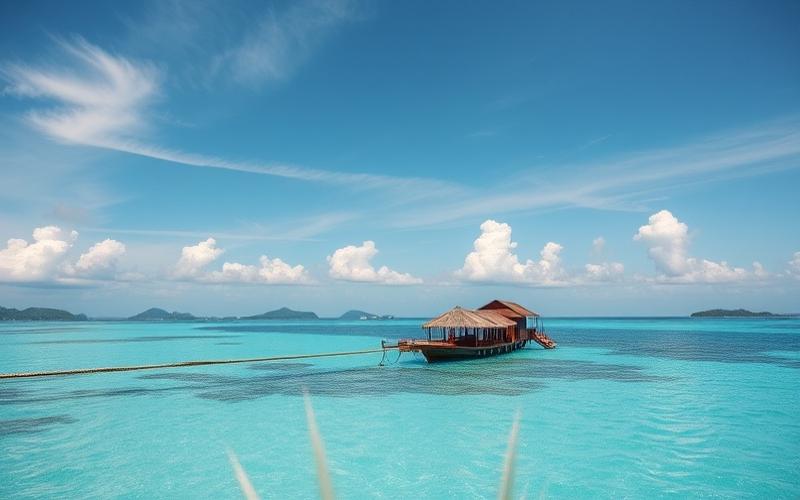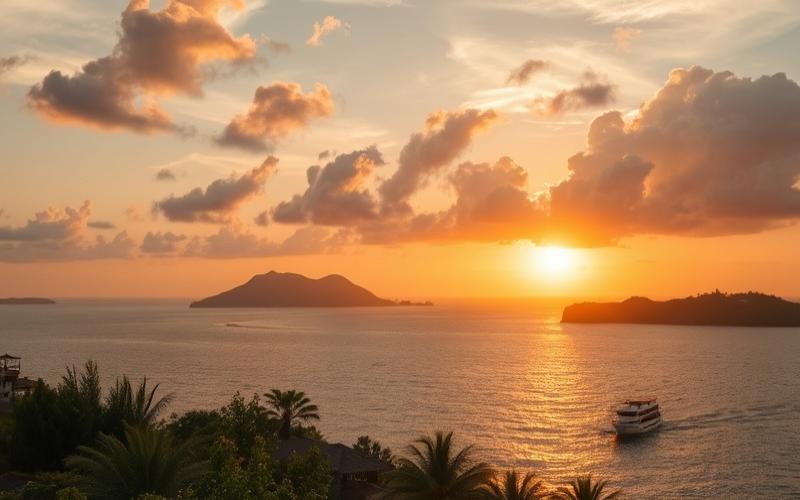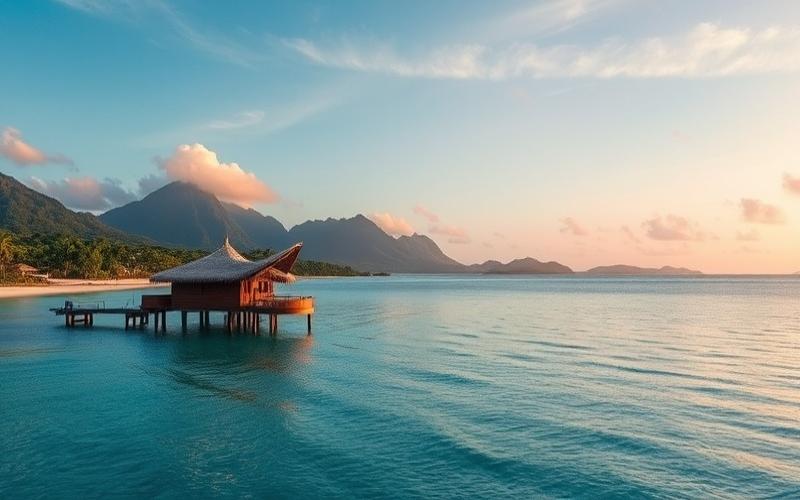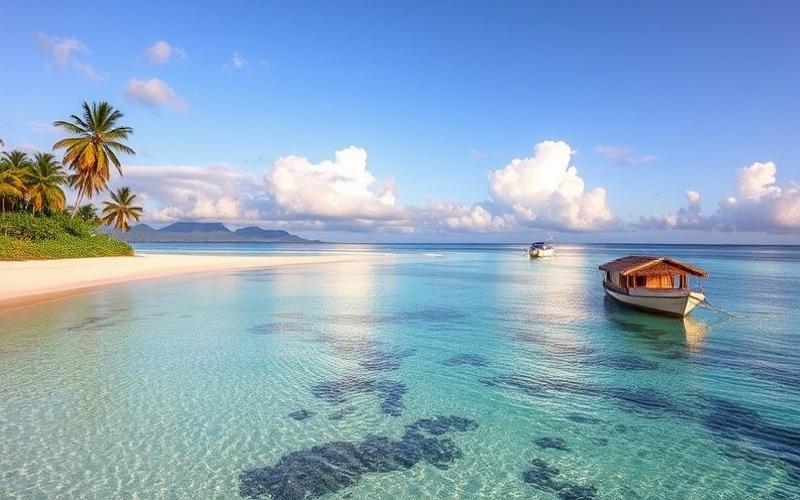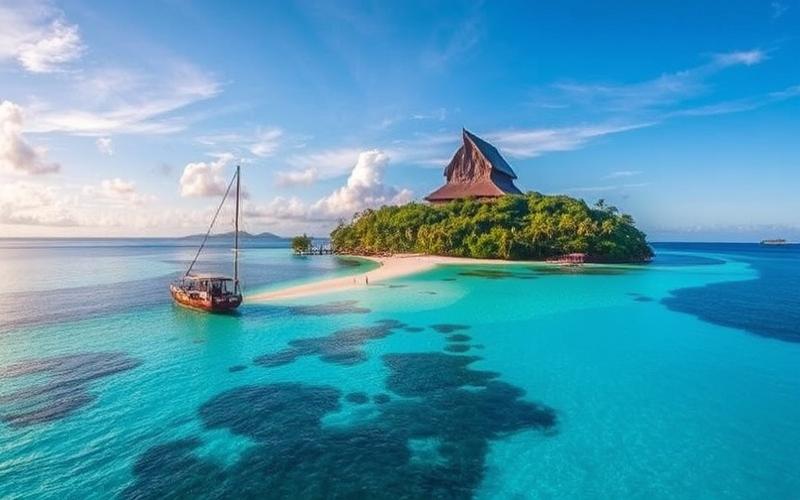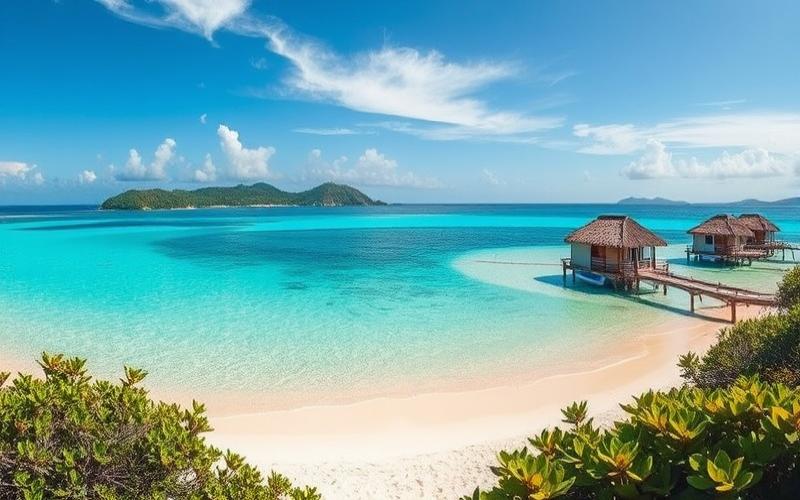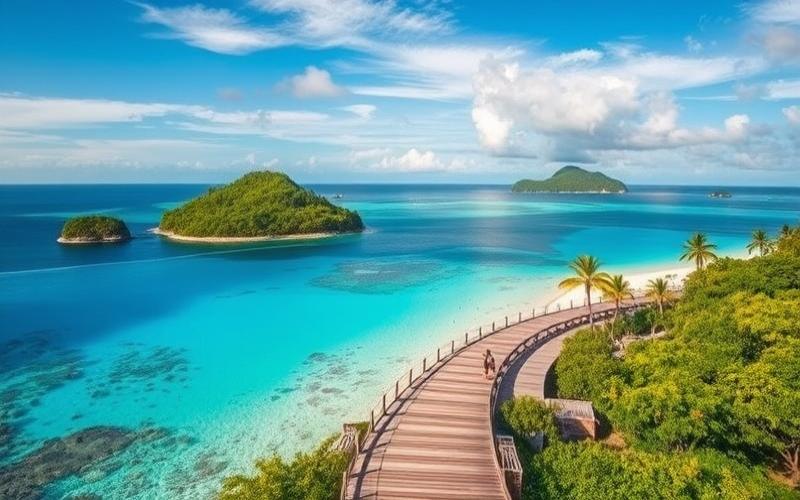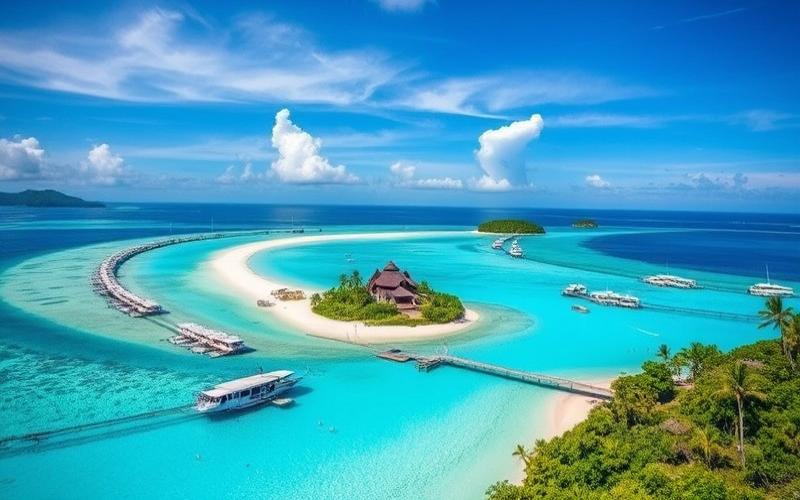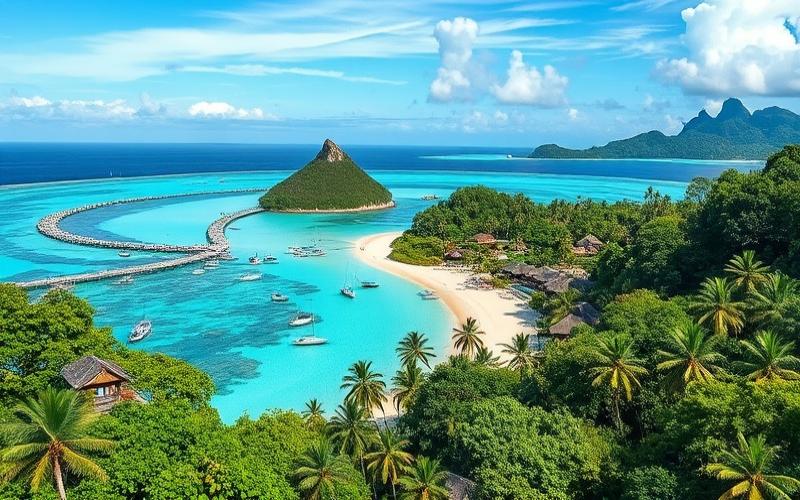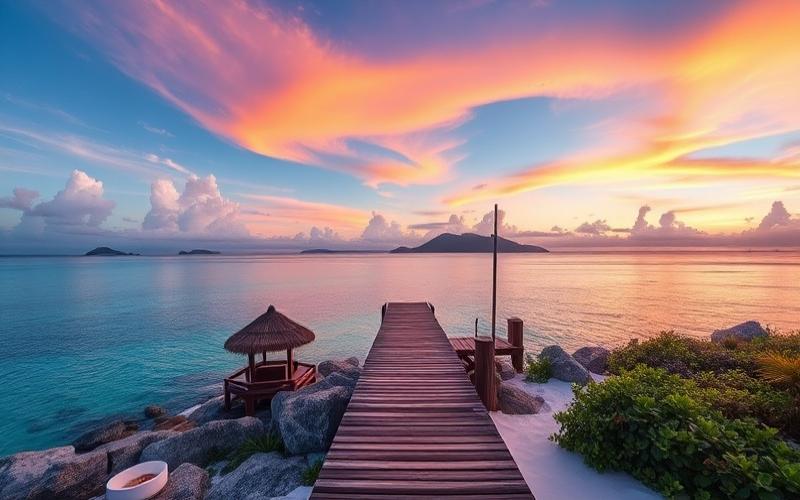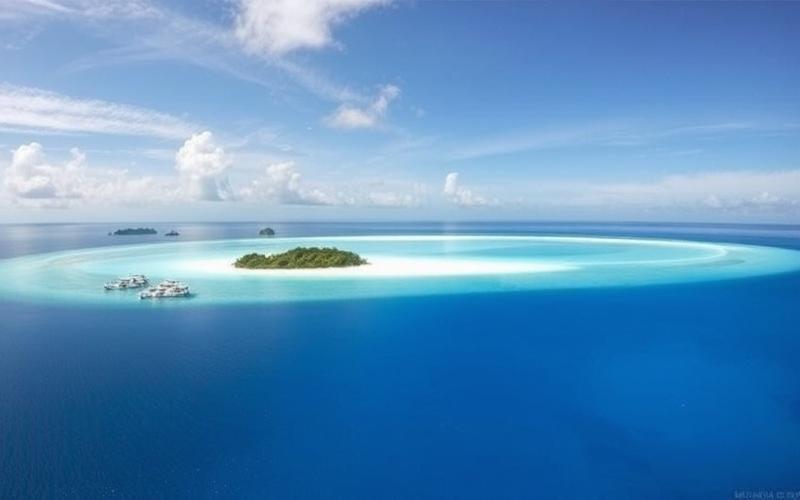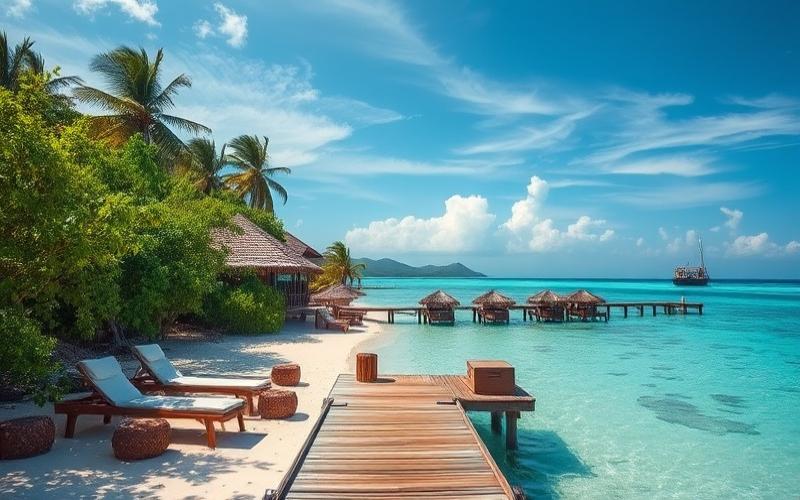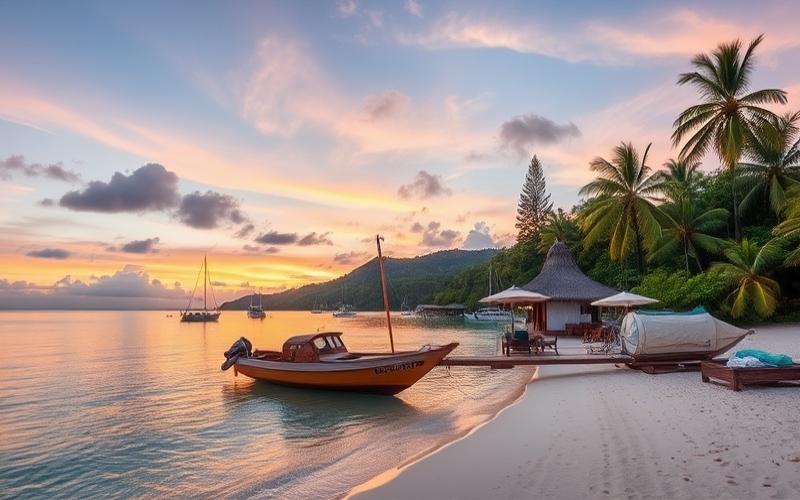
 Published on and written by Cyril Jarnias
Published on and written by Cyril Jarnias
The paradise archipelago of the Seychelles is attracting more and more foreign investors drawn by its dream beaches and exceptional living environment. However, purchasing property on these Indian Ocean islands requires a good understanding of the local market specifics to avoid disappointments. Here’s an overview of the most common mistakes to avoid when acquiring real estate in the Seychelles.
Not checking your eligibility to purchase: the first misstep to avoid
Seychelles legislation strictly regulates the purchase of real estate by foreigners. Unlike other destinations, it’s not possible for a non-resident to acquire just any property in the archipelago. Only certain specific real estate projects, approved by the government under the Foreigners’ Property Holding (FPH) program, are open for sale to non-Seychellois.
These projects mainly concern luxury residences, villas, and high-end apartments located in dedicated complexes. Before embarking on any purchase process, make sure that the desired property is indeed part of the list of properties eligible for acquisition by foreigners. This preliminary check will save you from many disappointments and wasted time.
Furthermore, even for eligible properties, purchase by a foreigner is subject to approval from the Seychelles government. Therefore, you must prepare a complete file and obtain the green light from authorities before finalizing the transaction. Don’t neglect this crucial administrative step.
Good to know:
Only real estate projects approved under the FPH program are accessible to foreign buyers. Government authorization is required to finalize the purchase.
Underestimating additional costs: beware of unpleasant surprises
Purchasing real estate in the Seychelles comes with significant additional expenses that must be included in your overall budget. Beyond the purchase price of the property itself, several taxes and fees are added:
- Registration fees: 5% of the property value
- Stamp duty: additional 5%
- Notary fees: approximately 1.5% of the sale price
- Attorney fees: variable depending on the complexity of the case
- Bank fees in case of a mortgage
In total, you should budget for approximately 12 to 15% in additional costs beyond the purchase price. A significant amount that can quickly increase the final bill by several tens or even hundreds of thousands of euros for a luxury property.
Furthermore, don’t forget to include in your budget the recurring costs associated with property ownership in the Seychelles: property taxes, maintenance fees, condominium charges where applicable, etc. These expenses can quickly become substantial, especially for a secondary residence occupied only a few weeks per year.
Finally, if you’re considering renting out your property in your absence, keep in mind that rental income is subject to 15% taxation in the Seychelles.
Good to know:
Budget for approximately 15% in additional costs beyond the purchase price. Don’t forget to include recurring costs (taxes, maintenance) in your budget.
Neglecting location: a crucial choice for property appreciation
In the Seychelles more than elsewhere, location is a determining factor in choosing a property. The value and appreciation potential of a property strongly depend on its location within the archipelago.
The main islands of Mahé, Praslin, and La Digue concentrate most of the high-end real estate market. On these islands, certain areas are particularly sought after and command the highest prices:
- Mahé: the northwest coast (Beau Vallon, Glacis), the east coast (Anse Royale, Au Cap), and the south (Baie Lazare, Takamaka)
- Praslin: the north coast (Anse Lazio, Anse Georgette)
- La Digue: the west coast (Anse Source d’Argent)
Properties located beachfront or offering breathtaking ocean views are the most sought after and command a significant premium. Conversely, properties set back from the coastline or without direct sea views trade at significantly lower prices.
Also be careful not to focus solely on the beauty of the site. Take into account practical aspects like accessibility, proximity to shops and services, and exposure to weather hazards (especially cyclone risk). An isolated property on a secondary island may seem idyllic but prove complicated to manage on a daily basis.
Finally, research planned development projects near your future property. The construction of a hotel complex or tourist infrastructure can significantly impact your property’s value, either positively or negatively depending on the case.
Good to know:
Prioritize premium beachfront locations on the main islands. Consider accessibility and upcoming development projects.
Skipping thorough due diligence: a major risk
Purchasing real estate in the Seychelles requires heightened vigilance and thorough checks. The local legal and regulatory framework has certain particularities that must be well understood to secure your transaction.
First, ensure the seller has proper title to the property. The Seychelles land system can be complex, sometimes with situations of joint ownership or poorly defined customary rights. Always have a thorough search conducted on the property’s history and legal status by a specialized local attorney.
Also scrupulously verify the property’s compliance with current zoning regulations. The Seychelles applies strict construction standards, particularly in sensitive coastal areas. Ensure all necessary permits have been obtained and that the property complies with local requirements.
For properties under construction or off-plan, exercise extra caution. Examine in detail the guarantees offered by the developer, their track record, and financial stability. Verify that the project has indeed obtained all required permits and is compliant with the FPH program.
Finally, don’t hesitate to engage an independent expert to conduct a comprehensive technical audit of the property. Tropical weather conditions can accelerate building deterioration. A thorough inspection will help identify any hidden defects and assess necessary future work.
Good to know:
Have comprehensive due diligence conducted by local professionals: attorney, technical expert, etc. Don’t neglect any verification.
Jumping at an attractive offer: caution with unrealistic promises
The Seychelles real estate market attracts many foreign investors, which can lead to certain abuses. Be wary of offers that seem too good to be true or promises of fantastic returns. If an opportunity seems too good to be true, it probably is.
Some unscrupulous agents or developers don’t hesitate to artificially inflate appreciation prospects or rental profitability to attract buyers. Keep in mind that the Seychelles real estate market, although dynamic, is not immune to economic cycles. Prices have seen strong growth in recent years, but nothing guarantees this trend will continue indefinitely.
Also be wary of properties offered at abnormally low prices compared to the market. These could be properties with hidden defects, legal problems, or that don’t meet eligibility criteria for foreign buyers.
Take the time to thoroughly study the local market, compare offers, and form your own opinion about the real value of properties. Don’t hesitate to seek opinions from several independent professionals before committing.
Finally, remain vigilant about complex or opaque financial arrangements proposed by some intermediaries. Always prioritize transparency and simplicity in your real estate transactions in the Seychelles.
Good to know:
Be wary of offers that seem too good to be true or unrealistic return promises. Take time to study the market and compare offers.
Underestimating remote management constraints: a potential headache
For many foreign investors, purchasing property in the Seychelles is for a secondary residence or rental investment. However, remotely managing a property in the archipelago can prove more complex than anticipated.
First, tropical weather conditions require regular and rigorous maintenance of real estate properties. Humidity, heat, and ocean proximity can accelerate the deterioration of materials and equipment. A property left unattended for long periods risks rapid deterioration.
Furthermore, skilled labor can be scarce and expensive in the archipelago. Finding reliable tradespeople for work or repairs can be challenging, especially from abroad.
If you’re considering renting out your property, keep in mind that the Seychelles rental market is highly seasonal. Effective management of bookings and guest services requires on-site presence or hiring a professional manager. Associated costs can quickly eat into your investment’s profitability.
Finally, remember that the Seychelles remain a distant destination for most European or American investors. Frequent trips to oversee your property can prove costly and time-consuming.
To overcome these difficulties, it’s highly recommended to rely on a local network of trusted professionals: real estate agent, property manager, attorney, etc. Some high-end residential complexes offer integrated management services that can greatly simplify life for non-resident owners.
Good to know:
Remote management of a property in the Seychelles can prove complex and costly. Budget significantly for maintenance and consider hiring local professionals.
Ignoring tax specifics: beware of unpleasant surprises
The tax regime applicable to foreign investors in the Seychelles has certain particularities that are crucial to understand before any real estate purchase. Unfamiliarity with these rules can have significant financial consequences.
First, acquiring real estate in the Seychelles comes with significant taxes:
- Registration fees: 5% of the property value
- Stamp duty: additional 5%
These taxes are payable by the buyer and are added to the purchase price. They therefore represent a significant expense to include in your overall budget.
Furthermore, non-resident owners are subject to an annual property tax of 0.25% of the property value. This tax applies regardless of how the property is used (secondary residence or rental).
If the property is rented out, rental income is taxed at 15% in the Seychelles. This tax is withheld at source by the rental management agent.
Also be aware of tax implications in your country of residence. Owning real estate in the Seychelles can have consequences for your personal tax situation, particularly regarding real estate wealth tax or foreign account reporting.
Finally, if the property is sold, a 5% capital gains tax on real estate applies. This tax is calculated on the difference between the sale price and purchase price, after deducting acquisition costs and any work performed.
It’s highly recommended to consult a tax expert familiar with the Seychelles context to optimize your investment strategy and avoid any risk of tax reassessment.
Good to know:
The Seychelles tax regime has important specifics for foreign investors. Consult an expert to optimize your strategy and avoid pitfalls.
Neglecting environmental impact: a crucial issue in the Seychelles
The Seychelles are recognized for their exceptional biodiversity and fragile ecosystems. Environmental preservation is a major concern for local authorities, reflected in strict regulations regarding construction and development.
Any real estate project in the Seychelles must undergo a thorough environmental impact assessment. This study aims to evaluate the project’s potential consequences on local wildlife, flora, and ecosystems. Not meeting these requirements can lead to the outright cancellation of the project, even at an advanced stage.
Furthermore, construction standards in the Seychelles increasingly incorporate environmental criteria: energy efficiency, water management, use of sustainable materials, etc. These constraints can significantly impact construction costs and timelines.
It’s also important to note that certain areas of the Seychelles territory are classified as nature reserves or subject to specific protections. Construction possibilities there are very limited, or even completely prohibited. Therefore, ensure the property you’re considering isn’t located in an area subject to particular restrictions.
Finally, as an owner, you’ll have the responsibility to ensure environmental preservation on your plot. This may involve constraints regarding land maintenance, waste management, or protection of local wildlife and flora.
Far from being a hindrance, this environmental commitment can instead be an asset for your investment. Environmentally friendly real estate properties are increasingly sought after in the Seychelles, by both buyers and tenants. A well-designed project from an ecological perspective can therefore prove to be an excellent long-term investment.
Good to know:
Environmental preservation is a major issue in the Seychelles. Integrate ecological constraints from your project’s conception to make it an asset.
Relying solely on photos: the importance of on-site visits
In the digital age, it’s tempting to rely on beautiful promotional photos and videos to choose real estate in the Seychelles. However, nothing replaces an on-site visit to get an accurate idea of the property and its environment.
Images can be misleading, particularly regarding:
- The actual view from the property: clever framing can hide visual obstacles
- The property’s general condition: photo editing can conceal defects
- The immediate surroundings: neighborhood, access, potential nuisances
- The actual dimensions and volumes of rooms
- The property’s actual brightness at different times of day
Furthermore, an on-site visit will allow you to grasp essential elements that don’t show in photos:
- The general atmosphere of the neighborhood or residential complex
- The quality of finishes and materials used
- Smells (humidity, potential mold)
- Surrounding noises (road, neighbors, etc.)
- Air flow and natural ventilation of the property
Don’t hesitate to conduct several visits at different times of day to get an accurate idea of the property. If you can’t visit in person, consider hiring a trusted professional to conduct these visits on your behalf and provide a detailed report.
Finally, take advantage of your on-site presence to explore the neighborhood, test nearby shops and services, and immerse yourself in the local atmosphere. These elements are just as important as the property’s intrinsic characteristics to ensure your investment’s success.
Good to know:
An on-site visit is essential to fully understand a property. Don’t rely solely on promotional photos and videos.
Neglecting legal aspects: a major risk in the Seychelles
The legal framework surrounding real estate purchase in the Seychelles has certain particularities that are crucial to master. Neglecting these aspects can lead to complex situations, or even challenge your acquisition.
First, ensure the seller has all necessary rights to transfer the property. The Seychelles land system can sometimes be complex, with situations of joint ownership or poorly defined customary rights. A thorough search on the property’s history and legal status is essential.
Furthermore, scrupulously verify that the property you’re considering acquiring is indeed eligible for purchase by a foreigner under the FPH (Foreigners’ Property Holding) program. Only certain specific projects, approved by the government, can be sold to non-Seychellois.
Also pay attention to the sales contract clauses. Seychelles legislation may differ significantly from that of your home country. Get assistance from a specialized local attorney to examine the agreement terms in detail and ensure they protect your interests.
Don’t forget that purchasing real estate by a foreigner in the Seychelles is subject to government authorization. This process can take several weeks, or even months. Don’t commit definitively until you’ve obtained all necessary authorizations.
Finally, be particularly vigilant if you’re considering buying a property under construction or off-plan. Ensure the developer has all required guarantees and permits. Examine the reservation contract clauses in detail, particularly regarding delivery timelines and penalties for delays.
Good to know:
The legal aspects of real estate purchase in the Seychelles are complex. Be sure to get assistance from a specialized local attorney throughout the process.
Disclaimer: The information provided on this website is for informational purposes only and does not constitute financial, legal, or professional advice. We encourage you to consult qualified experts before making any investment, real estate, or expatriation decisions. Although we strive to maintain up-to-date and accurate information, we do not guarantee the completeness, accuracy, or timeliness of the proposed content. As investment and expatriation involve risks, we disclaim any liability for potential losses or damages arising from the use of this site. Your use of this site confirms your acceptance of these terms and your understanding of the associated risks.

